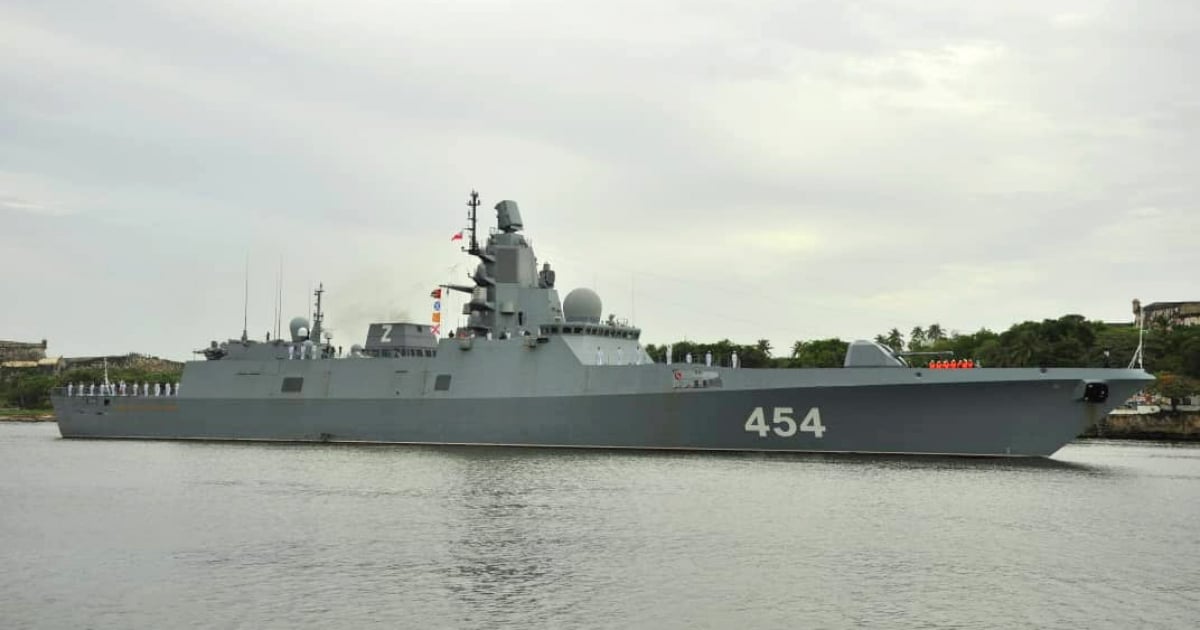
The recent arrival of a fleet from the Russian Navy at Havana Bay, consisting of a nuclear submarine, an oil tanker, a salvage tug, and a modern frigate, has generated a mix of admiration and criticism among Cubans. This deployment, which will last until June 17, has attracted the attention of both locals and international observers, highlighting the significant Russian military presence in Cuban territory at a time of increasing geopolitical tensions.
The arrival of these ships brings back memories for Cubans of the events of the October 1962 crisis, where Cuba was a Soviet pawn in the strategic game between the two powers. This event not only marked a critical point in the Cold War but also demonstrated how easily the island can become a battleground for foreign interests. The echoes of that crisis still resonate in the collective memory, and the current situation is no less concerning. History seems to be repeating itself with the current regime, which, despite the lessons of the past, continues to allow Cuba to become a pawn on the chessboard of the great powers.
The Cuban government proudly welcomes the Russian fleet, believing that this action validates its regime to the world. However, it fails to understand that the Russians are only using Cuba in a new strategic move. In the context of the war in Ukraine, NATO brings its weapons closer to Russia, and in response, Russia moves its own closer to the US. The arrival of the Russian fleet in Havana is not a gesture of selfless support; it is a calculated maneuver aimed at balancing power against Western actions in Ukraine. Will this work out well for Russia? It might, or it might not. History has shown that geopolitical gambles of this magnitude are highly unpredictable and can have devastating consequences.
What matters here is that Cuba, now as in the October crisis, will be just a disposable pawn. And Díaz-Canel should know that, if he had an ounce of common sense. The Cuban leadership seems to forget that in the game of superpowers, pawns are expendable. The risk of turning Cuba into a battlefield again is real and terrifying. The current situation is no different: Cuba runs the risk of being caught in the middle of a conflict between giants, with no real benefit for its population.
For Cubans, this visit changes nothing. Comments on social media and in the media clearly reflect their real needs: food and electricity. "Now we are fine, instead of bringing food and medicine, they bring weapons," says Melani Gasca, while Rosa Maria Rivero Garcia expresses: "Why so many warships, FOOD, MEDICINE AND THERMAL POWER is what is needed." The Cuban people are tired of military displays and being used as a bargaining chip in conflicts that do not benefit them. The reality is that these warships do not bring solutions to the everyday problems of Cubans. The shortages of food, medicine, and electrical energy are the true urgencies that the regime should address.
Will this visit only be an anecdote? Let's hope so, and that the Russians take their missiles to other lands. A prolonged stay or if this visit becomes an advancement of Russian bases in Cuba could create a potentially dangerous situation for the island, and a drastic increase in restrictions imposed by the American embargo. Cuba cannot afford to become an enemy of the U.S. again. The country does not need to be in the midst of another October crisis, even less so at a time like the present. History should serve as a lesson and not just a memory to prevent past mistakes from repeating in the present.
The government once again shows that it is nothing more than a huge obstacle in the path of the Cuban people's journey towards prosperity.
What do you think?
VIEW COMMENTS (1)Filed under:
Opinion article: The statements and opinions expressed in this article are the sole responsibility of its author and do not necessarily represent the viewpoint of CiberCuba.